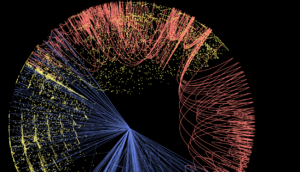
post
December 1, 2014
Suffering from Vendor Fatigue? Here’s How Consolidation Can Help
One of our clients has seven telephony providers–we are the eighth. Thankfully, we’re helping them consolidate.
Over the last six weeks, we’ve been able to migrate 60 percent of their traffic to the OneReach platform. Good for us, right? But even better for them.
By consolidating vendors, they’ve been able to save themselves time, money, and a heck of a lot of stress. And guess what? You business can do this too. Check out great benefits of consolidation below:
Centralized management on any scale
In a centralized company, the most important decisions are made by higher-ups or headquarters instead of branch managers–decisions are made in one central location and passed downwards. Not only does this save branch managers time, it also ensures that the customer experience is consistent and efficient anywhere in the world.
By letting headquarters make the important decisions, everyone reaps the benefits: headquarters can use their knowledge and experience to the company’s advantage, giving branch managers the time to focus on staff, who can then focus on customers. It’s a win-win-win-win scenario.
Centralized data and analytics
According to Gartner analyst Svetlana Sicular, “Big data is a way to preserve context that is missing in the refined structured data stores.” This might sound complicated, but what she’s basically that data is stronger united than it is divided.
Unfortunately, a lot of companies have their data divided. Each department or branch collects different types of data based on what’s important to them (i.e. channel preferences, purchase history, etc). and stores it in different locations. It’s difficult for businesses to make informed decisions when they aren’t looking at the whole picture.
However, centralized data and analytics aim to change all that. Storing data in one central location means employees can retrieve branch-specific or company-wide data in exactly the same place. This provides a better idea of what’s going on company-wide, but also helps them relate data points that had previously been separated.
Centralizing data works equally well for customer insight: instead of reaching out to marketing about a customer’s communication preferences, sales can find that information in exactly the same place marketing does.
Increased context
Centralization and consolidation can be just as great for your customers as it is for your company. After all, customers shouldn’t have to jump from department to department or channel to channel to get the answers they need. The same information should be available regardless of who they contact or how they contact them.
One way to do this is with screen pops—notifications that provide agents with relevant customer information. Instead of going into a customer call blind, agents can then personalize their conversations based on the customer’s past interactions.
Automated solutions like IVR can do this too. Instead of presenting each customer with the same generic prompt, your IVR can review Customer A’s past interactions, see that their car is due for a tune-up, then provide them with an immediate option to do so.
Conclusion
Reducing the number of vendors you have isn’t an easy decision to make, and it shouldn’t be. It’s a big leap for any company, but if you do it right, it can be a positive one, too.
To learn more about creating an all-in-one communication solution for your business, visit onereach.com.
Photo by Flickr user Jesus Solana.
Stay up to date
Latest Articles




